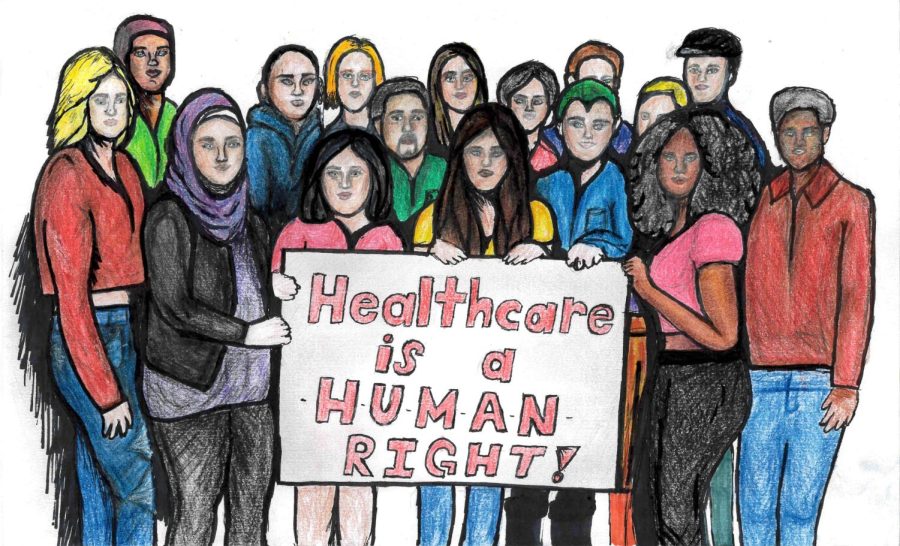OPINION: The U.S. health care system fails us
April 8, 2022
The American health care system is widely conducted on the basis of capital profit. Human lives are essentially treated as a product which must be purchased and further maintained at the cost of the person they belong to.
Bodily autonomy is only available to those who are able to purchase it. There are countless stories about people in the United States who suffer, or even die, because they cannot afford the cost of medical care. Even those who qualify for low-income health insurance are forced to jump through hoops to get the most basic care.
Growing up, my dad worked as a neurologist in a public hospital. He specialized in degenerative brain disorders, namely Alzheimer’s Disease. I grew up hearing stories about the patients he treated. They often suffered from serious conditions but were unable to afford the care they truly needed.
In my dad’s field of expertise, many of the conditions his patients suffered from impacted their ability to join the workforce and afford continued treatment. Although my dad did everything he could to help them, he worked in an underfunded department in a further underfunded and disorganized hospital.
The poorest Americans are afforded the bare minimum of medical care, an issue I became intimately aware of after my dad’s death in 2017. Despite my dad’s 20 years as a health care professional, following his death, my family lost our health insurance.
We were suddenly in a position of extreme emotional distress, without access to any of the very necessary mental health services we needed to deal with his loss. Grief is a powerful emotion. It interrupts life and prevents action.
My immediate family did not deal with the loss of my father for a long time, partly because our grief prevented any of us from genuinely seeking out counseling. While my family qualified for public insurance, we lacked the internal drive to make the never-ending phone calls and fill out the endless paperwork necessary to take advantage of those benefits.
Still, those benefits are limited. Virtually no psychiatrists accept public insurance. As such, it can be very difficult to treat mental illness, even when the treatment is desperately needed.
The inaccessibility of health care in the United States creates a cycle, wherein Americans are unable to treat themselves and as a result, are unable to work toward gaining access to treatment.








